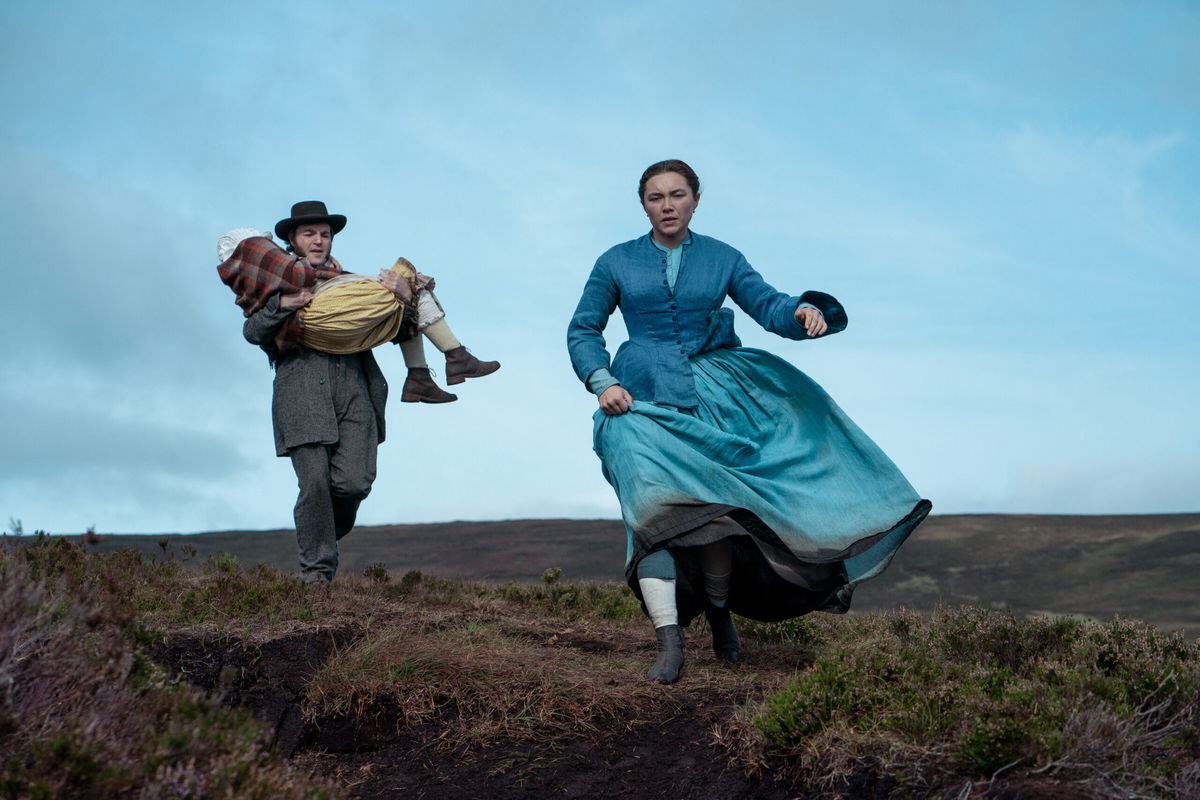Florence Pugh’s riveting performance makes eerie thriller ‘The Wonder’ essential viewing

Left to right: Kíla Lord Cassidy
Review by Thomas Page, CNN
Florence Pugh is always a welcome presence on screen, capable of great performances in films that might not always be worthy of them. But when she finds herself in a film that can match her talents, as she does in Sebastián Lelio’s “The Wonder,” she’s a marvel.
Pugh announced herself in 2016 period drama “Lady Macbeth,” all steel and poise, a dominant presence capable of grabbing a film by the scruff of the neck and marching off with it. In the years since she’s put that ability to use in all manner of fare, from superhero flicks to horror movies to a certain hullabaloo alongside Harry Styles. Six years later, she’s back leading another period drama. The sang-froid remains, the same steel, but she’s a different actor now, capable of shouldering even more. In “The Wonder,” a film of considerable emotional depth that asks much of its actors, the result is perhaps her finest work to date.
Set in 1860s Ireland, Pugh plays Lib, an English nurse and Crimean War veteran who’s been summoned to a remote community to examine an 11-year-old girl. The child Anna (Kíla Lord Cassidy) claims not to have eaten for four months, yet miraculously appears well, surviving, she says, on “manna from heaven.” A god-fearing committee of male elders employs Lib and a second nurse, a nun, to stand vigil over the girl for 15 days, to discern whether a miracle or a hoax is unfolding before them. At no point are they to intervene.
A simple premise births a film that’s anything but. This is a tale about the stories we tell each other and the stories we tell ourselves; where reality and fiction meld, in which we’re asked to contemplate the knotty ethics of extricating the two. When is a story benign and when does it cause harm? Can any good come from denying someone their own truth?
Lelio’s eerie thriller draws our attention to its art and artifice from the beginning, opening with a slow pan through a film studio, before the camera finds Pugh inside a set — in the bowels of a ship, to be exact, bound for Ireland. It’s a bold choice, not dissimilar from sequences in Joanna Hogg’s recent “The Souvenir: Part II,” which with its film-within-a-film structure forced the audience to contemplate the nuts and bolts of the process, along with the power and deliverance that comes with an act of creation.
Anna seeks a deliverance of sorts through her own act of refusal. From the church to the doctor’s surgery to the guesthouse in which Lib stays, there’s talk of nothing else. She has everyone’s rapt attention, including Tom Burke’s newspaper reporter who’s travelled from London to poke around. He’s affable if sceptical and becomes Lib’s unlikely confident. There’s something off about the way the girl’s devout parents seem to welcome their daughter’s state, their lack of concern altogether concerning to the nurse.
Lelio, the Chilean director behind Oscar winner “A Fantastic Woman,” has spent the best part of his career centering stories on women, and his adaptation of Emma Donoghue’s 2016 novel is no different. Rarely are his leads neat or tidy, and true to form Lib is no saint, with sorrows and secrets of her own. The relationship between nurse and ward is considerably muddied by Lib’s past, just as Anna is terribly burdened by her own. The dual study the director crafts, with both characters drawn together while the central mystery grows between them, sees newcomer Cassidy go toe-to-toe with Pugh. It’s a far more even match than one might suspect, and more thrilling than one might presume.
Beautifully photographed by Ari Wenger, the cinematographer behind “Lady Macbeth” and “The Power of the Dog” captures the feverish tone of Lelio’s storytelling both figuratively and literally: Kafkaesque meetings with the committee stifling in their symmetry, while inside Anna’s dark attic room, warm candlelight picks up cold sweat on a young girl’s brow. The film’s ever quickening pulse comes courtesy of some tight editing from Kristina Hetherington as well as a score from Matthew Herbert, a composer whose roots in dance music remain evident here.
As an adaptation of Donoghue’s novel, it’s an excellent one, and Lelio’s framing and willingness to deconstruct the novel’s themes elevates it considerably. “The Wonder” is a period drama unbound by its setting, even its plot, aware that its true subject — the seductive nature of a good story — refuses all confinement. It amounts to a bold and daring swing.
Without Pugh’s riveting turn, would it all hold together quite so effortlessly? Probably not. But that’s another story.
“The Wonder” is available in select cinemas on November 2 and available on Netflix November 16.
The-CNN-Wire
™ & © 2022 Cable News Network, Inc., a Warner Bros. Discovery Company. All rights reserved.


![“I’ve always said I want to work with [Martin] Scorsese](https://kion546.b-cdn.net/2024/11/cnn-L19jb21wb25lbnRzL2ltYWdlL2luc3RhbmNlcy9jbTNoamFqbmIwMDEwM2I2bW9qczk5eGoz-L19jb21wb25lbnRzL2FydGljbGUvaW5zdGFuY2VzL2NtM2hmcHIzdzAwMmwyNW51NGFiaGF2YTU-500x321.jpg)